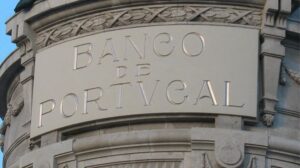The Council of Ministers has approved plans to create a state-owned development bank to channel funds to companies and sectors in order to dynamise the economy.
It’s a plan ministers have long been saying is ‘vital’ for Portugal’s recovery effort, though it will be dependent on talks going ahead today to discuss the ‘brave European plan’ to rescue Member States from the Covid doldrums.
Right now, the country is hoping to receive 15.5 billion euros in non-repayable grants and 10.9 billion in loans “if the EU recovery fund is approved”.
It’s still a ‘big if’ – and no decision is expected within the time frame that all concerned are hoping for.
But once funds are released, they “would be channelled through the (development) bank”, the purpose of which will be to “address market failures and/ or situations in need of investment optimisation”.
In the meantime, the decision to create the bank will require approval from the Bank of Portugal and the European Commission.
The bank itself is to be made up of three existing investment and mutual guarantee funds: PME Investimentos – Sociedade de Investimentos, S.A., IFD – Instituição Financeira de Desenvolvimento, S.A. and SPGM — Sociedade de Investimentos.
Said André Moz Caldas, secretary of state for the Council of Ministers, the bank’s role will include ‘providing bank guarantees and long-term financing to companies in high-risk sectors, supporting exports and taking equity and shares in companies requiring investment’.
Economy minister Pedro Siza Vieira is one of the many voices that have been calling for the creation of a development bank.
At the beginning of June he said that such a bank was “indispensable to support not just this stabilisation phase but the restarting of the economy”.
In the same week, prime minister Antonio Costa intimated that talks with the European Commission were already “very advanced” and that the bank ‘should be created within months’.




















